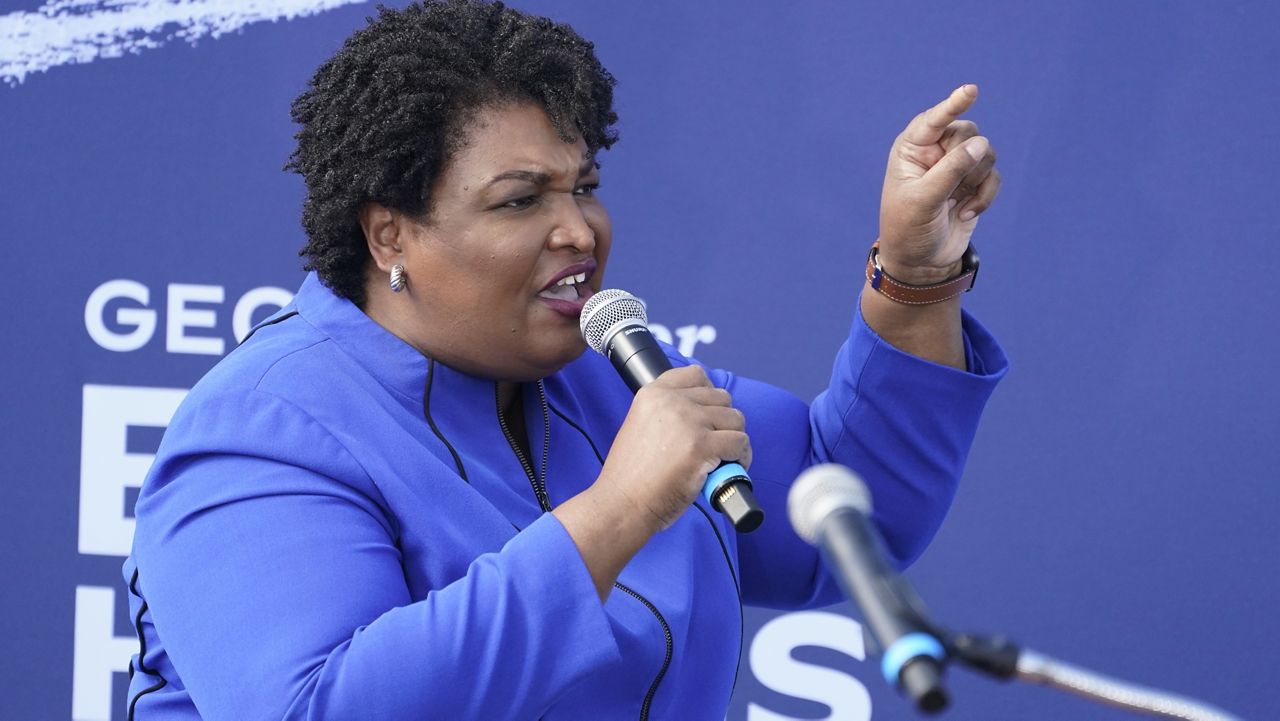Stacey Abrams did not mince words about Republican attempts to restrict voting rights access in her home state of Georgia, calling their efforts “racist.”
“I do absolutely agree that it’s racist,” the former Georgia gubernatorial candidate said on CNN’s “State of the Union” on Sunday. “It is a redux of Jim Crow in a suit and tie.”
Georgia, which had not picked a Democrat for president since Bill Clinton in 1992, went for Biden by nearly 12,000 votes in November 2020, then sent Democrats Jon Ossoff and Rev. Raphael Warnock to the Senate in runoff elections two months later, the first all-Democrat Senate delegation from the Peach State in decades.
“We know that the only thing that precipitated these charges – it's not that there was a question of security. In fact, the secretary and the governor went to great pains to assure America that Georgia elections were secure,” she said. “And so the only connection that we can find is that more people of color voted and it changed the outcome of elections in the direction Republicans do not like.”
Georgia’s Senate last week passed a sweeping bill that would repeal no-excuse absentee voting, which 1.3 million Georgians used to vote in the presidential election. The move comes as a number of GOP-controlled state legislatures passed bills aiming to restrict voting rights after the former president’s rampant false claims of voter fraud in the 2020 election.
“Instead of celebrating better access and more participation, their response is to try to eliminate access to voting for primarily communities of color,” Abrams said. "And there’s a direct correlation between the usage of drop boxes, the usage of in-person early voting, especially on Sundays, and the use of vote by mail and a direct increase in the number of people of color voting.”
According to the Brennan Center for Justice, as of Feb. 19, 2021, state lawmakers have introduced 253 bills in 43 states that would restrict voting access; lawmakers in 43 states have introduced 704 bills with provisions that would expand voting access.
Earlier this month, Democrats in the House of Representatives passed a far-reaching voting reform bill along party lines. H.R. 1, the “For the People Act of 2021," would expand voter access to the ballot box. It would limit the purging of voter rolls; work to restore former felons’ voting rights; require states institute automatic and same day voter registration; and increase early and mail-in voting.
The White House called this “landmark legislation” that is “urgently needed” to “safeguard the integrity of our elections.” But Republican Minority Leader Mitch McConnell has described the bill as a democratic effort to “steamroll states and localities to try and prevent themselves from losing even more seats next time.” The measure is headed for trouble in the Senate, where it requires a 60-vote majority to be passed into law.
Abrams told CNN that she doesn’t believe that it is “necessary to wholly eliminate the filibuster” to pass legislation to protect the right to vote, but noted that “just as we have seen an exemption carved into the filibuster rules for judicial appointments, for Cabinet appointments and for budget reconciliation, the protection for our democracy, especially in the wake of the insurrection on January 6 and it's continued ripples throughout our state legislatures, it demands that the entire US Senate acknowledge that protection of democracy is so fundamental that it should be exempt from the filibuster rules.”



